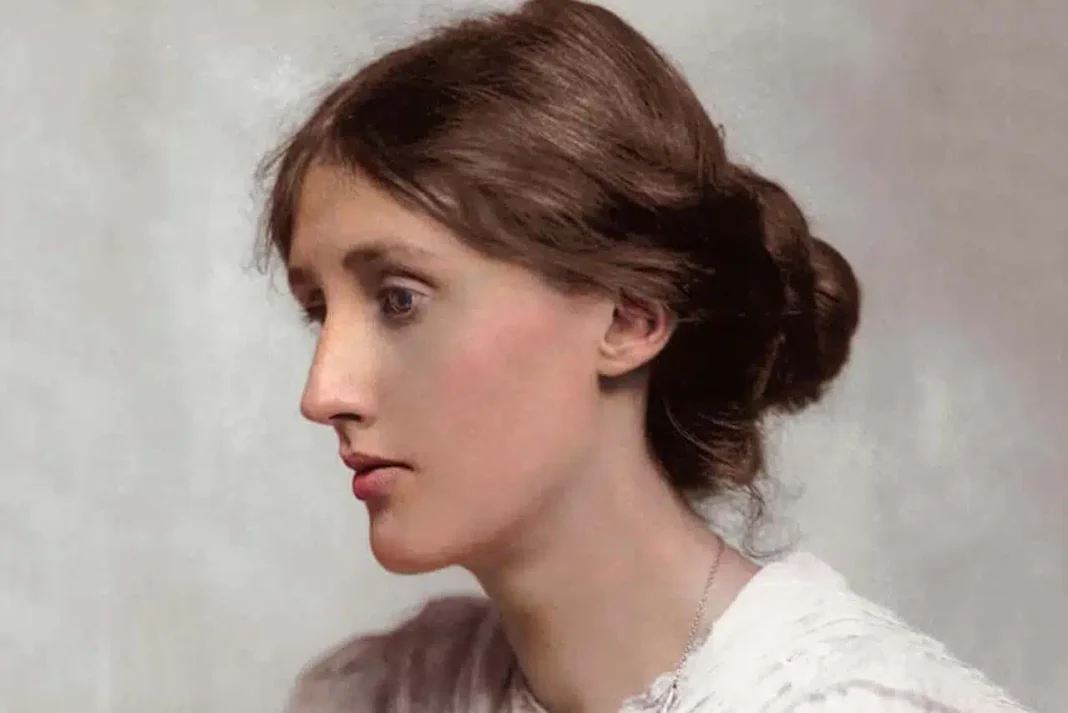Virginia Woolf was not only one of the pioneers of modernist literature but also a thinker who brought women’s social positions, psychological fragility, and pursuit of freedom into literary language. Born on January 25, 1882, Woolf transformed a life shaped by loss, trauma, and emotional turbulence through the power of her pen. Her works stand among the most compelling examples of how individual suffering can evolve into collective consciousness and a feminist perspective.
Childhood And Early Life
Woolf’s family was closely connected to the intellectual circles of her time. Her father, Sir Leslie Stephen, was a well-known writer and critic, while her mother, Julia Stephen, embodied the conventional female role of the era. However, the early death of her mother, followed by her father’s passing, left deep psychological scars on Virginia. Her childhood experiences of sexual abuse further heightened her vulnerability, paving the way for episodes of depression and anxiety.
These traumas did not remain merely personal; they transformed into recurring themes within her works. Loneliness, fragility, reflections on the female body, and internal conflict frequently appear in Woolf’s novels. Her diaries and letters reveal how permanent these wounds were. It is evident that the violations she experienced in childhood continued to shape her emotional world, influencing her repeated suicide attempts and ultimately her tragic death.
Feminist Consciousness And Literary Identity
The position of women in society stands as a central theme in Woolf’s works. In her 1929 essay A Room of One’s Own, she argues that women need not only financial but also intellectual independence in order to create. For Woolf, women’s freedom depends not merely on overcoming social barriers but also on breaking the mental chains imposed upon them. Three Guineas, on the other hand, transforms into a feminist manifesto as it sharply criticizes gender inequality in education and professional life.
Her involvement in the Bloomsbury Group enabled her to grow within an intellectually stimulating environment and engage with diverse ideas. The group provided a free space for discussions on art, literature, politics, and sexuality—strengthening Woolf’s feminist perspective.
Her marriage was also significant in shaping her feminist and intellectual identity. Her union with Leonard Woolf was founded not so much on romantic passion as on friendship, solidarity, and intellectual partnership. Leonard became her greatest supporter, standing by her throughout both her literary career and her psychological crises. Thus, their marriage diverged from the traditional gender relations of their era, embodying a different conception of love.
Love, Sexuality, And Freedom
Virginia Woolf’s approach to love and sexuality is deeply tied to her traumas and the restrictive roles imposed on women by patriarchal society. Rejecting the idea of the female body as a possession within a male-dominated structure, she experienced same-sex relationships as a space of liberation. Her relationship with Vita Sackville-West left a profound mark on both her personal life and literary production.
This connection reveals that Woolf perceived love not merely as a physical desire but as an intellectual and spiritual unity. This perspective also reflects her alignment with feminist consciousness. Opposing the confinement of women to the roles of wife and mother, Woolf defined love as an egalitarian experience. For her, love was part of the broader journey toward individual freedom.
Psychological Reflections And Literary Contributions
Woolf’s lifelong emotional fluctuations are powerfully felt throughout her works. Her use of the stream of consciousness technique exposes the chaos of the human mind, the conflict between emotions, and the tension between personal identity and social expectation.
For instance, in Mrs Dalloway, Clarissa’s internal reflections over the course of a single day reveal the depth of human fragility. To the Lighthouse explores family relationships, loss, and the passage of time through a deeply psychological lens. These works exemplify Woolf’s ability to transform inner turmoil into artistic language.
Her writing also illuminates the complex relationship between psychological vulnerability and creative productivity. Woolf demonstrated that emotional pain can serve as a powerful source of artistic creation. In this sense, her literature was not merely an aesthetic pursuit but also a form of resistance and healing.
Conclusion
Virginia Woolf’s life represents a striking example of how personal trauma, feminist awareness, and creative authorship can intertwine. She transformed both her pain and her social observations through literature, giving a powerful voice to the struggle for women’s freedom.
Today, Woolf stands not only as a literary figure but also as an essential reference point for understanding female psychology, emotional fragility, and the quest for liberation. Her life and works demonstrate that personal suffering can be transformed into art—and that such transformation can serve collective awareness. Perhaps Woolf’s greatest legacy lies in turning literature into a voice and a space of freedom for women.
References
Bell, Q. (1972). Virginia Woolf: A Biography. London: Hogarth Press.
Bulut, A. (2016). Virginia Woolf’un yaşamı ve yapıtlarında kadın kimliği. Folklor/Edebiyat, 22(86), 53–72.
DeSalvo, L. (1989). Virginia Woolf: The Impact of Childhood Sexual Abuse on Her Life and Work. New York: Ballantine Books.
Marcus, J. (1981). New Feminist Essays on Virginia Woolf. London: Macmillan.
Woolf, V. (1929). A Room of One’s Own. London: Hogarth Press.
Woolf, V. (1938). Three Guineas. London: Hogarth Press.


